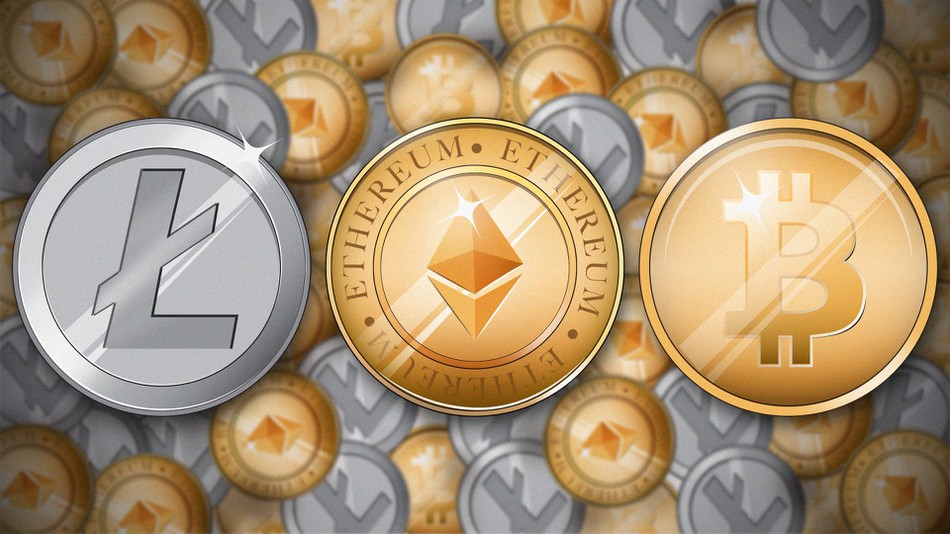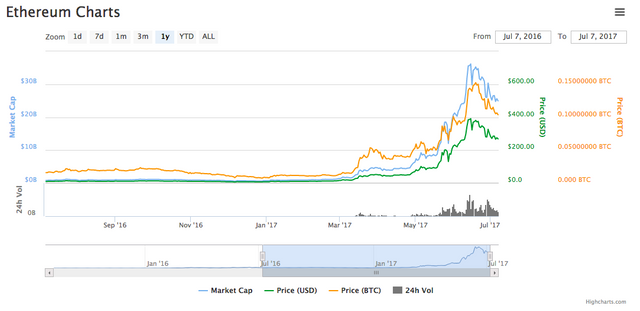It’s the year of the cryptocurrency. Bitcoin’s value has soared—at one point, to $3,000, well past the price of an ounce of gold. Equally as surprising, several new cryptocurrencies, such as Ethereum and Zcash, jumped into the spotlight, bringing the total worth of all cryptocoins to over $100 billion. 
But the long-term outlook on cryptocurrencies has gotten blurrier. After years of Bitcoin's dominance, squabbles among its core developers and lack of progress, together with rising transaction fees made it less attractive as both a payment system and a long-term store investment.
Ethereum is a strong competitor, but it's an entirely different animal, with a focus on applications built on the blockchain rather than simple payments. And a new cryptocoin, promising new and better features, seems to be launching every week.
No one can tell you exactly where to invest or what will happen to any of these cryptocurrencies. But this is a good moment to look at the ones that show the most promise.
Bitcoin
The cryptocurrency that started it all is still the most popular, despite its problems. At around $41 billion, it has the biggest market cap. It's been on the market for eight years, it's widely used around the world, and no one found an easily exploitable weakness in the way it works yet.
Bitcoin is both a store of value and a payment system, letting users easily send and receive bitcoins (also known as BTCs; digital tokens that are essentially Bitcoin's currency). It also has a somewhat sexy history, due to the unknown identity of its maker, a person or group of people called Satoshi Nakamoto, which disappeared about two years after launching the project in early 2009.
Bitcoin is based on an invention called the blockchain, which is also the basis of the vast majority of cryptocurrencies out there. Understanding the concept is not trivial, but is necessary in order to get a sense of what all these other cryptos are about.
Blockchain is a distributed database that stores all the transactions on the network in chunks of data called blocks. Every user has a copy of the blockchain (it's a bit more complicated than that, but that's the gist of it). So if Peter sends 1 bitcoin to Alice, everyone else on the network has that record. Furthermore, each sequential block on the blockchain has a cryptographic, time-stamped trail to the last record, which cannot be forged without everyone else noticing. The network itself is powered by miners, which employ computing power to calculate or "mine" the next block. This has a dual purpose: It generates new coins, and it provides the computational power for the system to record new transactions.
In practice, the blockchain solves several very important problems. It's a fully transparent system of financial transactions, in which every single transaction ever made can be tracked by anyone. It's decentralized, meaning you don't need a central institution, like a bank, to confirm anything. You also don't need bank counters or the people to work them. You don't need vaults to store money. You don't need online banking systems that depend on a different team of developers for every single bank. Bitcoin has it all: It's a way to store digital money, a way to send or receive it, and a way to securely store it for every single user out there. The transactions are fairly quick, secure, and the currency is doing all of it on its own, no maintenance required.
But not everything is right with Bitcoin, though. The block sizes in the blockchain are small and can accept a relatively low number of transactions, so with adoption growth the network has become slower. Fees have also risen. They're optional, but the big backlog of transactions means that if you don't pay the fee, your transaction will take a long time to process. The raging debate on how to fix this remains unsolved, and many feel Bitcoin is paralyzed because of it. Adoption of Bitcoin, while constantly growing, is far from ubiquitous; you still can't go to Amazon or eBay and buy stuff with bitcoins (at least not directly). And other cryptocurrencies have solved some of these issues and expanded to allow for far more advanced utilization.
Ethereum
Ethereum is a different beast than Bitcoin. Thought up by wunderkind programmer Vitalik Buterin, it can do many things Bitcoin can do, but its primary purpose is to be a platform upon which decentralized applications can be built.
The main difference between the two is in their blockchains. Bitcoin's blockchain basically records a type of contract, one that says that some digital funds have moved from one digital address to another. Additionally, you can run some simple applications on top of Bitcoin's blockchain. But Ethereum expanded this significantly. Its scripting language is more advanced, and its smart contracts can be complex applications with a far wider range of uses.
Developers took notice, and projects built on top of Ethereum started sprouting up. Some have raised millions of dollars through digital token crowdsales (also known as ICOs), and the trend is still strong. This makes Ethereum somewhat like the internet itself — a platform on which you can build wonderful things. As a consequence, the price skyrocketed; if you bought just $100 worth of ether some six months ago, you would now have more than $2500.

While Ethereum is often regarded as the most promising of all cryptocurrencies, its future is unclear for several reasons. First, Ethereum lives and dies by the value of the apps built on top of it; if these apps start failing (or not living up to their often ambitious promises), Ethereum will suffer, too. And despite Ethereum's ambitious long-term goals, it's not entirely clear whether the network can scale well enough to allow for complex applications with lots of users to run.
Furthermore, Ethereum's currency ether is not widely used as a means of payment and does not even aspire to replace Bitcoin in this regard, so it's unclear what you get, long-term, by owning ETH.
And, just like Bitcoin, Ethereum is very volatile. Ethereum-based VC fund called The DAO amassed large amounts of ether in a crowd sale in 2016, only to have a third of it stolen by a hacker who exploited a bug in DAO's code. This shook the Ethereum community profoundly, caused a sharp price drop and was ultimately fixed by altering the protocol and creating a new hard fork (that's why Ethereum Classic and Ethereum today exist side by side).
Litecoin
Litecoin is an alternative to Bitcoin that aims to fix several issues that are holding Bitcoin down (or are at least perceived to). It's not quite as innovative as Ethereum, and its value is mostly derived from solid user adoption. There's also a key difference in leadership. Litecoin is led by ex-Googler Charlie Lee, who's active on Twitter and transparent on what he's doing with Litecoin.
For a long time, Litecoin was a distant second fiddle to Bitcoin; far less valuable, but always there as a slightly more forward-looking alternative. But things started changing in May 2017. First, large crypto exchange Coinbase adopted Litecoin, alongside Bitcoin and Ethereum. Later that month, Litecoin adopted the Segregated Witness (SegWit) technology, which fixes the issue Bitcoin has been reluctant to solve; it adds capacity to the network and lowers transaction fees. And in June, Lee announced he's departing Coinbase, where he worked as the Director of Engineering, to focus solely on Litecoin.
As a result, Litecoin's price went up considerably in the last two months. But perhaps even more valuable to users and investors is the strengthening notion that Litecoin could truly be a viable alternative to Bitcoin.
Zcash/Monero
These two cryptocurrencies are technically very different, but they're bundled together here as they aim to solve the same problem: anonymous transactions.
Although often seen as a currency for the darknet and a way to launder money, Bitcoin's blockchain is in fact quite transparent; every single transaction is logged and public, and anyone can see how the money moved around. Bitcoin's protocol itself allows for a degree of anonymity, and there are ways to further anonymize Bitcoin transactions, but they aren't perfect.
Both Zcash and Monero aim to change this — for better or for worse. They do it in very different ways; the technical details are complex, but the main difference is in the blockchain, which is partially public on Zcash and opaque on Monero.
The jury is still out on which approach works better, and Zcash still hasn't fully implemented all of its technical wizardry. But the main point is that if you want privacy, these are the two most interesting options out there.
So why is this good? Obviously, some people who want privacy may want it for nefarious purposes. But there are legitimate use for private transactions; after all, not everyone would be comfortable if anyone could see how much money they've just spent on Star Wars memorabilia. While it's hard to point out which privacy-focused cryptocurrency will emerge on top, there's definitely demand for this type of cryptocoin, and it will not go away anytime soon.
Tezos/EOS/Bancor and others
Now, we enter the realm of pure speculation. The three projects listed above haven't even fully launched yet, and they still somehow managed to raise more than $100 million dollars each in an ICO.
Bancor is a platform that makes creating new digital tokens (new cryptocoins) easy, and promises to make every token liquid. Tezos is an alternative to Ethereum that can be upgraded consensually, without the need for hard forks. And EOS is another Ethereum competitor, which promises to solve Ethereum's scaling issues by providing a more robust set of tools to create and run apps on the platform.
And there are many others out there, with a very varied set of goals; Ripple, for example, focuses on low-cost international payments. Gnosis is a prediction market built on Ethereum, while Stratis makes it easier to build blockchain apps.
But predicting which one of these will be the next Bitcoin or Ethereum is incredibly hard. Some of these projects haven't even fully launched yet, and one key factor in the success of any cryptocurrency has always been user adoption. Both Bitcoin and Ethereum have it; in a sense, being the first to offer a new and interesting solution in this space meant people would flock to it and stick with it, even if there were bugs that needed ironing. All of the above received some degree of attention and support from early adopters, but they're still far from proven.
And nearly every new coin that appeared lately has received a fair share of criticism. Some have had their founders proclaimed shady or greedy, while others were said to be little more than white papers and a few lines of code. And often, there's truth to that: This space is evolving so rapidly that even joke cryptocoins are raising significant funds.
If you're interested in exploring this new frontier, read as much as you can about each project, and invest in — or simply start using — the one that does a good job of solving a problem that you have. Just like apps, the best ones will eventually arrive on top.
For more info on the projects listed above, check out their respective white papers: Bitcoin, Ethereum, Zcash, Monero, Bancor, Tezos, EOS. There's no white paper for Litecoin, but this video gives a solid overview of the project.
Hi! I am a robot. I just upvoted you! I found similar content that readers might be interested in:
http://mashable.com/2017/07/07/most-promising-cryptocurrencies/
Downvoting a post can decrease pending rewards and make it less visible. Common reasons:
Submit